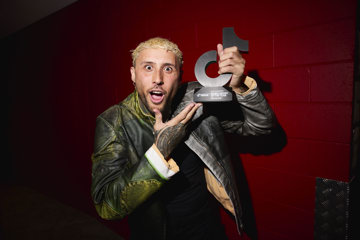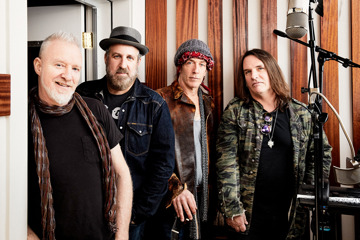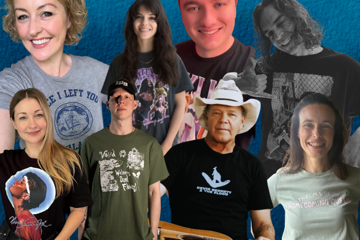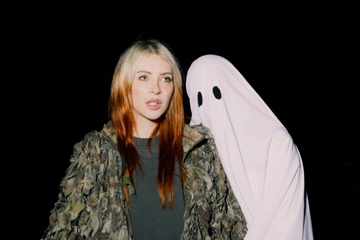X Misses The Spot: The Sad Underachievement Of 'The X Factor' Australia
'The X Factor Australia' ran for eight seasons Down Under... so why hasn't it been at all memorable?
In the wake of this morning's confirmation that the Australian version of long-running reality show The X Factor had been axed by Channel Seven, it seems fitting to reflect on the successes achieved by the show over its eight-season run.
Or, more fittingly, the significant lack of success.
In fact, for a show that ran as long as The X Factor, there are surprisingly few positives to write home about, even with more than 200 episodes, two channels, 15 judges, three hosts and a wealth of forgettable contestants to its name. It's actually quite sad: imbued with all the tools to thrive, The X Factor rarely did more than flounder.
Let's start with the series' most obvious failure: the fact that, although today's cancellation feels like an "at last" moment, it's actually more of a belated "told you so"; you see, back in 2005, after a woeful first season on Channel Ten — the same network that has renewed I'm A Celebrity, Get Me Out Of Here! multiple times, mind you — decided that it wasn't worth the time and effort, and sent it to the bin after 27 episodes.
Don't miss a beat with our FREE daily newsletter
The 2005 winners, Random, released their first single, Put Your Hands Up, in the weeks after their victory, peaking at #7 on the ARIA Singles chart. Their next effort, Are You Ready, peaked at #36 before their full-length hammered the final nail into the coffin of disinterest surrounding the band, achieving a high of #79 on the ARIA Albums Chart. They broke up in 2007.
In total fairness to the band — who seem like genuinely good blokes — they reunited for a one-off charity showing in 2009 to raise money for people affected by the Samoan tsunami in September of that year, so it's not like they didn't use their time on The X Factor to positive ends. And, in total fairness to the program, it had tried to make its initial mark all of three months after the second season of Australian Idol — the year of Casey Donovan, Anthony Callea, Ricki-Lee Coulter et al — while the nation was still well and truly in thrall to it as reality-singing-comp of choice. Perhaps that's why Channel Seven waited until Idol ultimately went off the air in 2009 before outbidding the Nine Network for The X Factor and its shot at reinventing, reinvigorating and redeeming the underperforming franchise.
But if ensuring the absence of Idol was a calculated move, it didn't really help the situation much.
In its second season, five years after its ill-fated inaugural outing for Ten, The X Factor raised former forklift driver Altiyan Childs to the heights of being its victor, faring far better from a commercial standpoint — Childs' self-titled debut album peaked at #3 in both Australia and New Zealand, and his first single was a local top-10 achiever — than from a personal one.
Although he resurfaced in 2015 to release his second album, Born Before The Sun, Childs' time in the limelight has been punctuated by concern and controversy, from a worrying outburst during his time in the competition (when he absconded to a cave in Sydney) to later unfortunate events such as his former manager being charged over weapons possession and Childs himself being written up for methamphetamine and cannabis use, an event that would lead to a pretty public falling out with his former mentor, Ronan Keating.
Maybe the mentors have more to do with the final outcome than it first appeared. In season three, under the guidance of original Australian Idol winner Guy Sebastian, young Reece Mastin made arguably the first real headway towards post-X success by steering first single Good Night to #1 in Australia and New Zealand, as well as seeing it become Sony's fastest-selling digital single locally. His debut album made its debut at #2, and he hit #1 again with Shout It Out, from his second album Beautiful Nightmare.
However, with the Sony ride over (Mastin parted ways with the label a couple of years ago and joined up with Social Family Records, out of Sydney), it remains to be seen if the baby-faced musician can sustain the broad interest he has enjoyed since appearing on the show; third album Change Colours arrived on his new label back in October 2015, ultimately hitting a peak of #12 on the ARIA chart.
In fact, perhaps it's not entirely accurate to say that The X Factor didn't yield success for its winners. In many cases, it seems, the victors managed to enjoy impressive results on at least one or two singles and albums while maintaining the public's interest. But it is longevity, or at the very least relevance, of success that may actually be the more questionable result. Take, for example, Samantha Jade, the winner of season four's competition: her first single, What You've Done To Me, made its debut at #1 on the ARIA Singles Chart the week of its release, going triple Platinum in a matter of weeks. The track's accompanying album stepped out at #3 on the ARIA Albums Chart and went Gold soon after.
She picked up an ARIA Award for the music video for her song Firestarter, and featured on a cover of I Am Australian with Jessica Mauboy, Dami Im, Justice Crew and others, but diminishing returns were already in play: her singles Soldier and Up! underperformed, peaking at #17 and #18 respectively, while the collab effort managed at top of #51. She did perform alongside both One Direction and Pitbull, though. Swings and roundabouts.
BUT — it was also around this time that her interests started to diverge from being solely preoccupied with music. Jade scored the role of Kylie Minogue in the INXS: Never Tear Us Apart miniseries (earning a Logie nomination in the process) and went on to join Home & Away in 2015, as well as the cast of House Of Bond in 2016. With no sign that her acting career is likely to abate, one has to wonder if someone else couldn't have maybe used the musical leg-up instead.
Either way, it's obvious that The X Factor winners aren't necessarily incapable of tasting actual success. In fact, fifth season victor Dami Im may be the single best demonstration of that fact to have come out of the entirety of the show. It's honestly hard to fault Im as a performer, or the way in which she has capitalised on her victory to ultimately position herself as one of the country's pre-eminent musical voices.
Long before she was doing Australia proud at Eurovision, Im rode her X Factor appearance to a showing at Carols In The Domain, swiftly earning herself a regular spot at the annual event. Her debut single and album both entered the charts at #1, the latter being certified Platinum. Add to that a smattering of ambassador deals with the likes of Alannah Hill, Priceline and Nintendo, and you've got yourself an X Factor winner that has defied tradition to make herself an indelible part of Australian pop culture.
Let us reiterate: Dami Im was the first winner in the show's history to land dual #1s on debut. Believe us when we say that she is exceptional. Sure, she doesn't have the chart power she used to, but on the cusp of her fourth album, she doesn't feel like she's at risk of going anywhere any time soon.
It's hard to make the same assessment of prodigious young victor Marlisa Punzalan, who took out the sixth season in 2014 at the probably-too-young age of 15. Through no real fault of her own, Punzalan has already apparently slipped into obscurity, seemingly dropped by Sony a year after her win, having released a #2 single (Stand By You) and #6 album (Marlisa, which was incidentally outperformed by the self-titled debut from Punzalan's runner-up, Dean Ray, which made its entry at #5). Despite some charity singles and activity in the Philippines, Punzalan has all but vanished from the mainstream radar. Given her youth, that's likely going to end up as a positive boost for her career, especially if it gives her the necessary time to re-emerge under her own terms at a later stage.
The same could be said for Cyrus Villanueva, now apparently just Cyrus, who was the winner of the seventh season. He released his debut, mononymous album and made his way up to #9, largely on the back of the top-five chart success of debut single Stone. He has since followed up with a collaborative effort with fellow one-time winner Samantha Jade and their track Hurt Anymore, but God knows why.
Lastly, Isaiah Firebrace — the last winner of The X Factor, having taken out 2016's eighth and final season — like Marlisa Punzalan before him, is really just an affable 17-year-old with a darn impressive voice and some pretty hectic eyebrows, so we don't want to put anything on his shoulders unfairly. Here are the facts, though: on the back of his X Factor win, his single, It's Gotta Be You, peaked at #26, with debut album Isaiah topping out at #12 on the ARIA Chart.
Impressively, he's not letting that (relative) underperformance discourage him; in fact, Firebrace may be looking to follow in the footsteps of long-time X Factor mentor Guy Sebastian and forebear victor Dami Im in representing Australia at Eurovision, if he can make that work out for himself.
And, look, if that's the best thing that comes out of the show's 11-year journey — that it generates a handful of willing and capable Australian representatives at the world's most wonderfully ridiculous singing competition — well, at least we can all take comfort in the fact that it yielded some kind of benefit to the community.
Even if it did employ Redfoo at one point.







